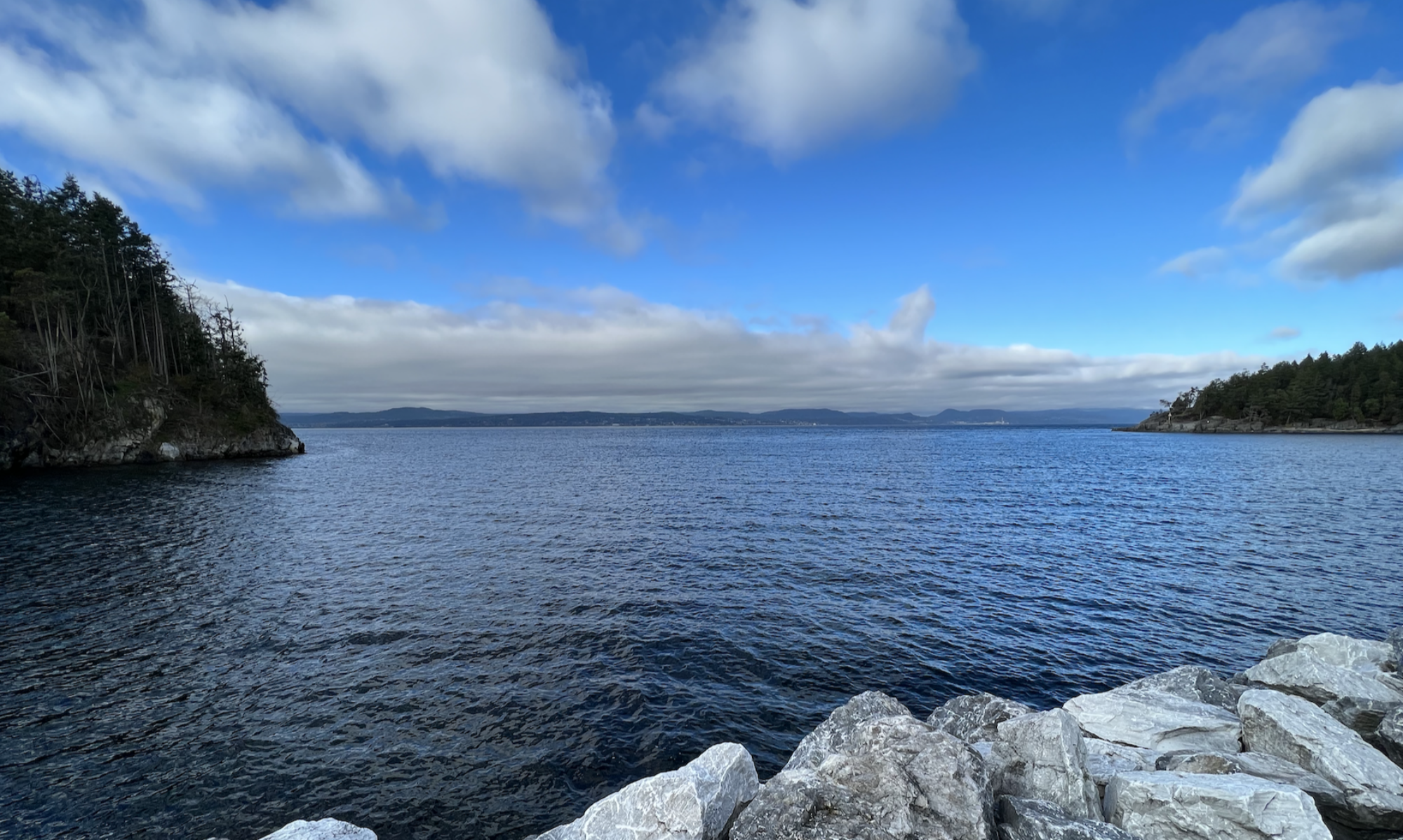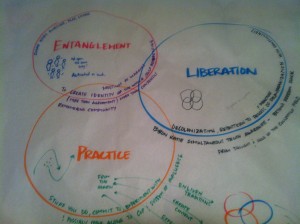This is a perspective I’ve put together and used more lately. It names three areas of focus for groups, as well as a background story. It is a response to the question, “What are we really doing and what is really going on here, particularly when groups are doing well together?” In short, entanglement is from the quantum perspective that purports a simultaneous state-shift between particles that have come into relationship with each other (entangled) when no longer in the same physical locations. When one changes spin, so does the other simultaneously, seemingly outside of the bounds of times and space. What feels helpful to me as background story is the ways that human beings can become attuned to each other and to the purpose of a project or the direction of a community. Is it possible for humans, sufficiently entangled, to also adapt simultaneously with each other? With this premise, the facilitation I do, is to support such an entanglement. Through sharing stories and questions together. Through play and listening together,
creating an identity,
an energetic quality of the whole group
that is much more than agreements and consensus.
I use liberation here to reference a kind of decolonizing or repatterning of our brains and the thoughts and projections that are part of being human. It is about getting free. Or about releasing habit. Even temporarily. There are very practical methods for doing this. One that I find very promising is The Work of Byron Katie. My friend Caitlin Frost is a long term practitioner of this kind of work, helping people to become aware of how engrained individual and collective projections can become. She’s really good at supporting people to see multiple truths simultaneously, rather than more restricted views. The outcome of that, I’ve always found to be very liberating.
Practice here is a reference to what we commit to do from such entanglement and liberation. Tasks. Experiments. Learning commitments. I’ve heard a fair amount of criticism about participative process, stating that it doesn’t lead to enough action. This practice is the action part. There is a difference in what we choose to do with each other when it is assigned compared to emerging from experiences of entanglement and liberation. The former can feel like assignment, void of real commitment and passion. The latter can feel like ease, synergy.




